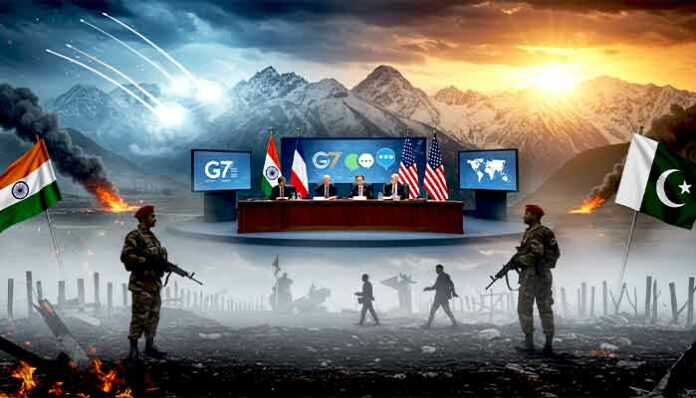With tensions growing between India and Pakistan, the G7 calls, made up of the world’s major economies, has urged both countries to start talking directly. At the same time, the U.S. has offered its help to kick off meaningful conversations between the two nations.
The world is growing increasingly concerned about the recent surge in the India-Pakistan conflict. On Wednesday, India launched airstrikes and missile attacks on Pakistan, sparking ongoing clashes between the two nations. The violence has already claimed the lives of many.
U.S. and G7 calls Tension Reduction
Recently, the U.S. and other G7 calls nations have been in close contact with both India and Pakistan, urging them to reduce tensions and prevent the situation from worsening.
During a call on Friday with Pakistan’s Army Chief Asim Munir, U.S. Secretary of State Marco Rubio discussed ways to initiate “constructive talks.” The U.S. State Department later confirmed that Rubio offered support to help avoid future conflicts
Since late April, Rubio has been regularly in touch with both Pakistan’s Prime Minister Shehbaz Sharif and India’s Foreign Minister Subrahmanyam Jaishankar, maintaining open communication to discuss ongoing matters.
This week, President Donald Trump described the growing tensions between India and Pakistan as unfortunate. Meanwhile, Vice President JD Vance pointed out that a war between the two countries would not be a concern for the U.S.
In recent years, Western nations have come to view India as a key ally in balancing China’s growing influence. At the same time, Pakistan remains a U.S. ally, though its significance has lessened since the U.S. withdrawal from Afghanistan in 2021.
keep Reading: The S-400 Was Meant to Protect India Military, So Why Couldn’t It Stop Pakistan
G7 Calls to Condemns Deadly Attack in Kashmir
The foreign ministers of Canada, France, Germany, Italy, Japan, the U.S., the U.K., and the European Union united in a statement condemning the deadly Islamist militant attack in India-administered Kashmir on April 22, which resulted in 26 fatalities. While India blamed Pakistan for the attack, Pakistan rejected the accusations and called for an independent investigation into the matter.
The G7 calls urged India and Pakistan to ease the rising tension immediately and come to the table for sincere talks that could help bring peace between them.
Kashmir, a Muslim-majority region nestled in the Himalayas, is claimed entirely by both India and Pakistan, though each holds only a portion of it. This long-standing dispute has fueled wars, violence, and tense stand-offs for decades, keeping peace out of reach.
Pakistan has stated that both sides, India and Pakistan Are still communicating through their national security councils. This indicates that, despite rising tensions, the door to dialogue hasn’t been shut entirely.

